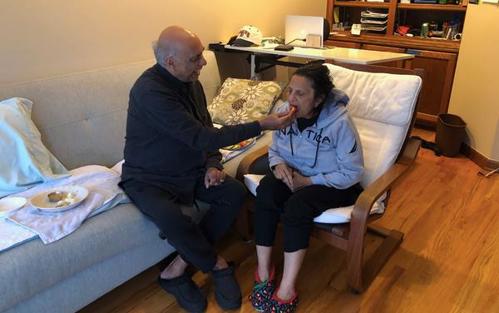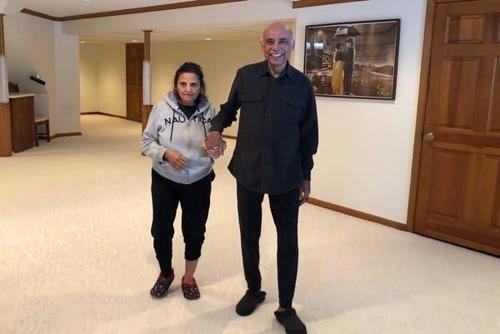Tuesday, March 24, 2020—3:00 am 43˚F (6˚C)—Sunny
When you, the readers of MJWS, take time and send your thoughtful responses and comments to my postings, I do not reply, but I do take note of them and remember them.
From your responses to yesterday’s post, I gather that it came out as I am overly consumed and terrified as to what will happen to Sumi if we both were to get the coronavirus.
I am a realist. I Googled the definition. A realist is a matter-of-fact, clear sighted, no-nonsense, down-to-earth and business- like person. A realist is having or showing a sensible and practical idea of what can be achieved or expected, representing familiar things in a candid way that is accurate or true to life.
Being an engineer and a problem-solver breeds a realistic mindset and approach in me. I try to solve problems without getting overly emotional.
To solve any problem, first you have to define the problem, then work on it to solve it, and then monitor that it is solved and working. A couple of tools I have used for this in my professional work are called, “Scenario Planning” and “SWOT” analysis.
Over the last few years, I consider myself to be in the “business” of providing services to Sumi. I constantly strive to provide services that “Delight the Customer” - Sumi being my customer. First you have to have the best people on your team. I have two of the best caregivers, who I found after trying out many. And, of course, you need support from your extended network of family and friends along with financial and other resources.
In Scenario Planning, you plan ahead as to what could happen to your business. You look at the three macro possibilities:
1. Your business goes on as usual, no ups and no downs, like “Steady Freddie.”
2. Your business expands so fast that you don’t know how to meet the demand.
3. Some catastrophic external event happens and your business is reduced or, in the extreme case, you lose your business.
After Scenario Planning, you brainstorm and come up with mitigation plans. The idea is to not be blind-sided by changing external circumstances. I am willing to bet that coronavirus was not on anyone’s business scenario plan. But businesses that have done a good analysis of other catastrophic circumstances may be better positioned to respond quickly to the coronavirus.
SWOT analysis helps in developing the strategies for success. It stands for Strengths, Weaknesses, Opportunities and Threats. In any business, you have to be honest and analyze yourself with regard to SWOT. If I do a SWOT analysis of Sumi’s care partnering, it would be as shown in Figure 1.
When the New York Times reporter contacted me for the upcoming article, her singular focus was my fears vis-à-vis the coronavirus. To prepare, I let my “fickle mind” roam. I wrote down all the threats I could think of and shared them in yesterday’s post. It may have sounded like I was overly consumed by it, but I was just focusing on the assignment to identify these threats.
My post yesterday also got very warm and complimentary responses from other caregivers in my support group who are traveling a similar journey. They told me I verbalized their own feelings and fears. This helps all of us, individually and as a group, process our emotions and come to terms with them. Otherwise, we could get stuck brooding and be consumed by them.
In short, all is well. No worries. “The State of Sumi and My Well-being are Good.”
|
STRENGTHS |
WEAKNESSES |
OPPORTUNITIES |
THREATS |
|
My strength, as mentioned above, is that I am a realist, a problem solver, staying positive. I continue to strive to delight Sumi with one-on-one, person- centered care to attend to her well- being. |
Many times, your strengths could be your weaknesses. I consider myself a left-brainer. On many occasions, I find that I should be right-brained and understand other’s emotions and needs. Slowly but steadily, I have been working on it. Being a care partner constantly provides me with opportunities to practice it. |
Being a care partner, I have found a lot of opportunities. The biggest opportunity I have found is chronicling my thoughts and feelings in My Journey with Sumi and sharing them. It has allowed me to read and understand Sumi’s disease, reflect on it, come to emotional acceptance and management. I have grown, matured, and my physical and emotional well-being have improved. I am self-healing and at peace with myself. |
The main threat is if something happens to me and I am not able to provide care to Sumi. For this threat, I have visited a few nursing homes in the area, in case Sumi needs to be placed in one of them. |
Figure 1

|

|
